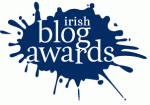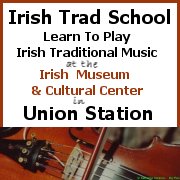Ireland & USA Little Differences #25: LEGO
LEGO
Maybe it’s not an international difference between America and Ireland; maybe it’s personal.
Either way it doesn’t half irk.
In Ireland, in fact in Europe as far as I know - and that matters for LEGO is a European brand - we say LEGO.
Because it says LEGO on the box.
That means as a child you are given a LEGO set. And when you open it you play with your LEGO pieces, many of them LEGO bricks. With the increasing variety of pieces away from the traditional brick shape, it is pieces of LEGO that you always seem to be tidying up.
It is used as an adjective.
In America however, there are things called Legos. It is legos that children play with and leave scattered over floors for parents to walk on. Despite the attraction of almost sounding like a Nigerian city on a lesbian island, this is a word worse than sheeps.
According to the official website the name ‘LEGO’ is an abbreviation of the two Danish words “leg godt”, meaning “play well”. So if it were named in English it would be a Play Well set and it would consist of, I would suggest, Play Well pieces rather than Play Wells.
Think of a Jigsaw Puzzle. It is jigsaw puzzle pieces (or jigsaw pieces) that you drop on the floor, not jigsaw puzzles (or jigsaws). Unless you’re particularly careless, that is. And when you think you have completed the jigsaw puzzle only to find a hole in it, you are missing a piece; you are not missing a jigsaw (puzzle). Or perhaps you’re missing 2 pieces, but even so you’d hardly declare that you’re missing 2 jigsaw puzzles - especially when you only purchased one.
And what does the official website say on the matter (link)?
If the LEGO trademark is used at all, it should always be used as an adjective, not as a noun. For example, say “MODELS BUILT OF LEGO BRICKS”. Never say “MODELS BUILT OF LEGOs”.
Oh okay, the sharp-eyed among you will have spotted that LEGO is not only used as an adjective in Ireland/Europe. It is also used as an adjectival noun. For the plural form of LEGO pieces. But this is what happens to adjectives. Especially when they are brandnames. As in “I need more LEGO”, “Who’s after robbin’ the LEGO I left in the fridge?” and “I’m worried about him, he loves LEGO too much”.
See Other Little Differences Between Ireland & the US:
• Talking Temperatures in Ireland and America
• Hosting Tourists in Ireland and America
• Valentine’s Day in Ireland and America
• All The Little Differences Between the US & Ireland

 Eolaí gan Fhéile:
Eolaí gan Fhéile:











it’s the opposite of “Math” and “Maths”!
We add an s onto Supermarkets though! Tescos? I used to add it to Meijer in the states and than Yanks would think I was nuts… force of habit I guess. Works both ways. I used to think they were nuts calling tissues Kleenex, but we call a vacuum a Hoover and even use it as a verb! I never did pick up on the Lego thing though… funny!
I never did pick up on the Lego thing though… funny!
[…] tagged ireland #38; USA Little Differences #25: LEGO saved by 4 others MjOoPi bookmarked on 05/21/08 | […]
Deb - When we add an “S” onto things it’s usually to use its possessive form, for example the way a pub with Morgan on the fascia becomes Morgan’s without the need to use the noun being possessed - “pub” in this case.
It’s mostly done to a name such as Miller Beer becoming Miller’s and Tesco becoming Tesco’s. I don’t think LEGOs as used in the US is meant to be the possessive form though. I like the way we even do it to things already in the possessive as in St. Stephen’s Day becoming St. Stephen’s’s [sic].
Kleenex made instant sense to me even though it never became part of my own vocabulary.
I reckon Hoover progressed from a noun to a verb here because of its aural quality in being able to sound like one.
Tim - Yep, though the Math/Maths thing is just a different way to abbreviate, whereas the LEGO/LEGOs thing is positively philosophical. And again though I never could bring myself to say “Math” I was fine with others doing so.
LEGOs irked though. Really irked.
What can be considered by some as minor issues really bug me. LEGO(s) being one.
Euro (€) is another. The English plural of euro is euro. Not euros.
And while I’m bitching, there is no official abbreviation for (euro)cent although c and ct are generally acceptable. The use of the ¢ symbol is totally incorrect, even though I admit to having used it myself out of pure laziness.
Right. Nearly finished. Just to say LEGO is also used as a verb in Ireland. As in “would ya LEGO me leg, ya bollix ya”.
The reason for the s in the US is because every kid is spoiled and has more than one set of Lego. Therefore the referrence is Legos.
Ah, Primal! That’s a wholenuther ball of wax there. In the US, thanks to a TV commercial, you would command someone to “L’Eggo my Eggo!”-a brand of frozen waffle. And since we’re speaking of TV-at least I am-I don’t know if I could ever say ‘telly’.
But I give on the Lego(s) issue, ‘cuz I was always partial to Lincoln Logs myself.
Oh! Hi, Eolai. Didn’t see you there.
Lego is the devil’s adjectival noun. It can bugger a hoover and cripple a grown be-socked woman in just one morning’s work. Filthy stuff.
Primal - You’re talking a lot of cents there.
Chris - That would explain while you played with Lincoln Logs in America, in Ireland I just played with my log.
Sugar - Don’t mind me, though while I’m here I will acknowledge that Telly is a hard sell.
Sam - Yep, and that reminded me of a story in The Onion about Area Man many years ago.
This kind of reminds me of the use of a plural verb after a singular noun denoting a group of persons being more common in Ireland and the U.K. than in the U.S.
Nokia are announcing their new phone next month.
Perhaps this LEGO versus LEGOs is a variation on a similar theme in English dialect differences.
Sean
Sean, I’ve often wondered about this myself a fair bit but not noticed a pattern, possibly because I’ve concentrated on whether there’s a difference just between Ireland and Britain.
So thanks for that, and I feel what you’ve spotted might well explain why I’m constantly slipping between the two forms, sometimes changing sentences backwards and forwards.
And now that you’ve alerted me to it I’m going to pay closer attention to it on both sides of the Atlantic.
It’s the little quirks that irk, isn’t it? I’ve always been bothered by the lack of an article in British usages of words such as “hospital” and “university”. You “go to university”. We “go to a university”.